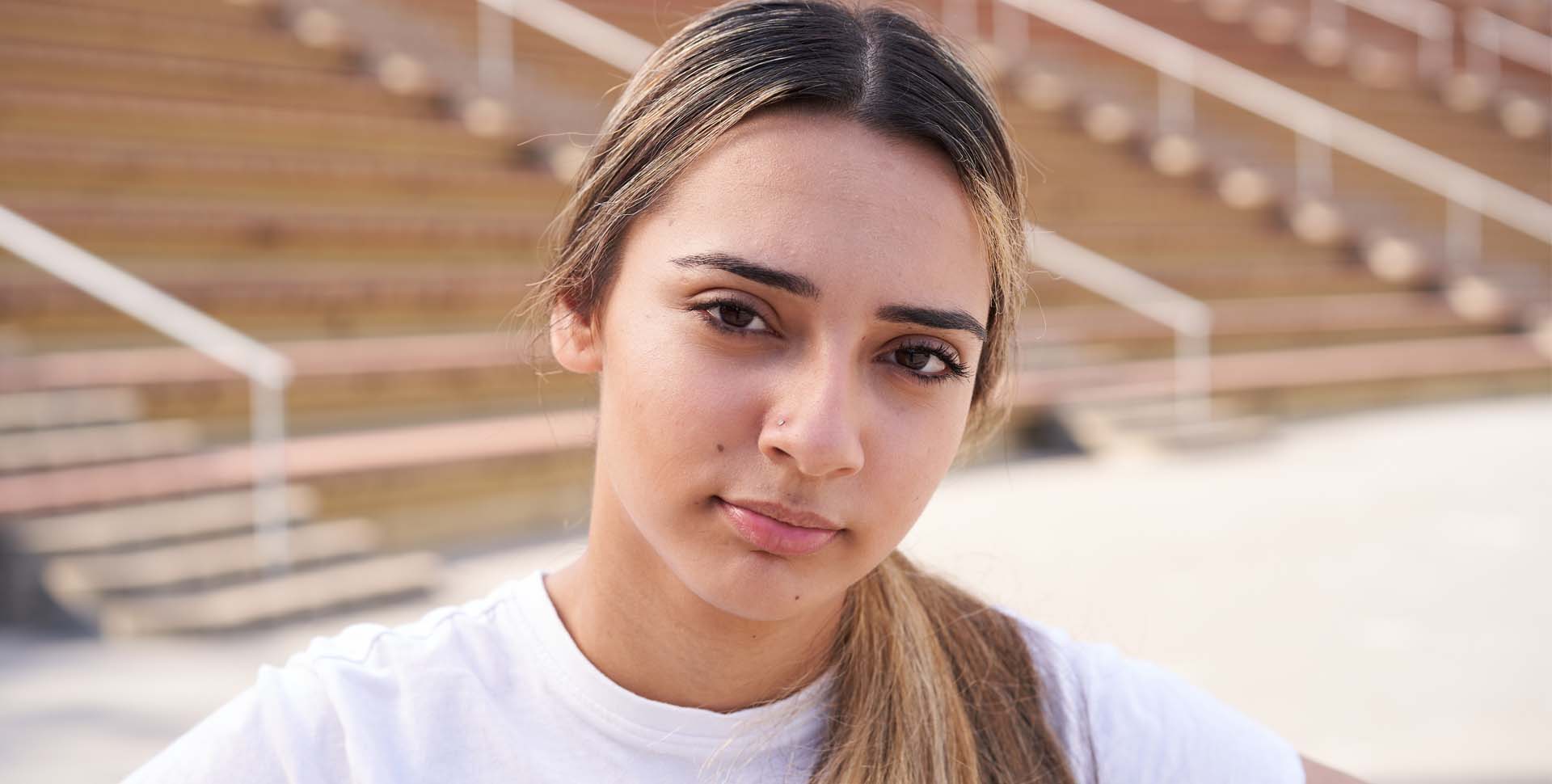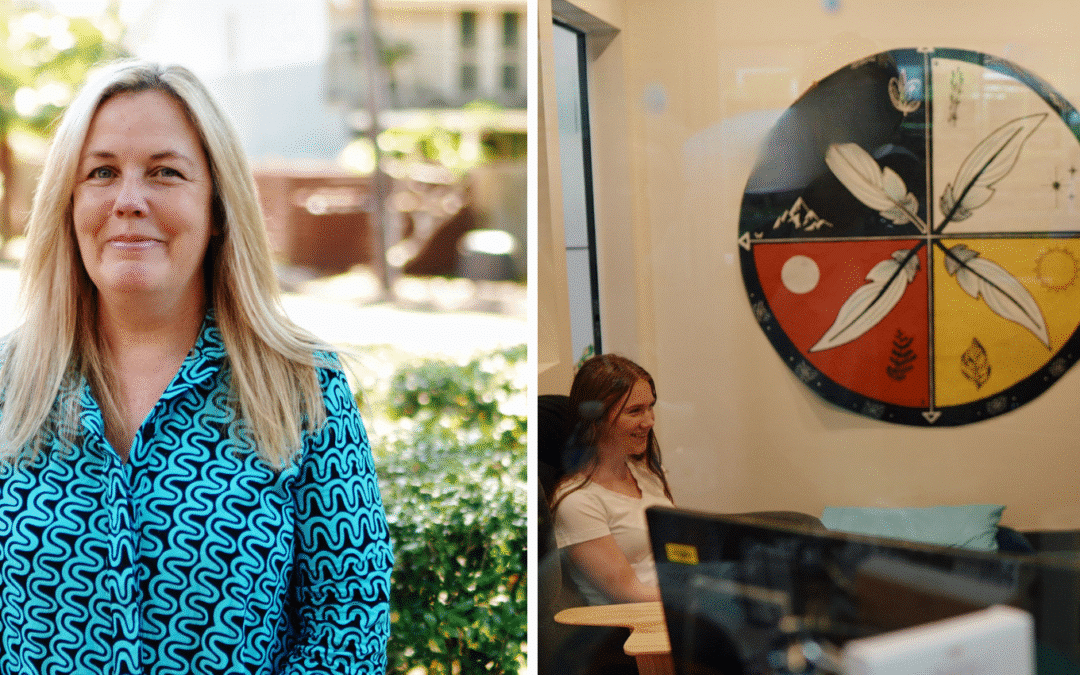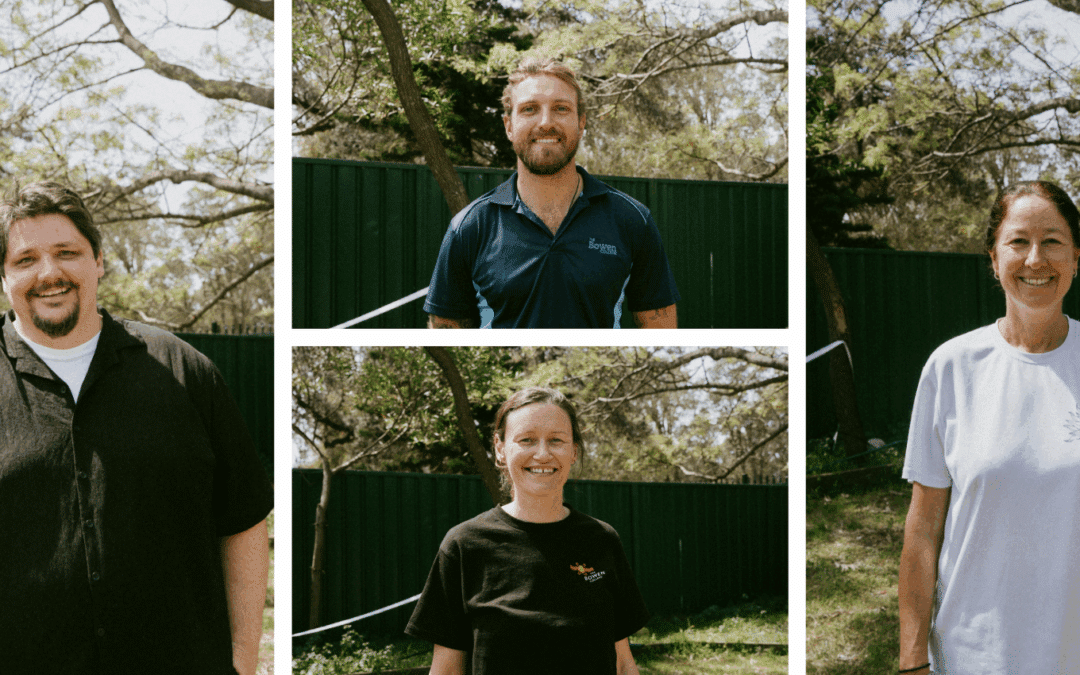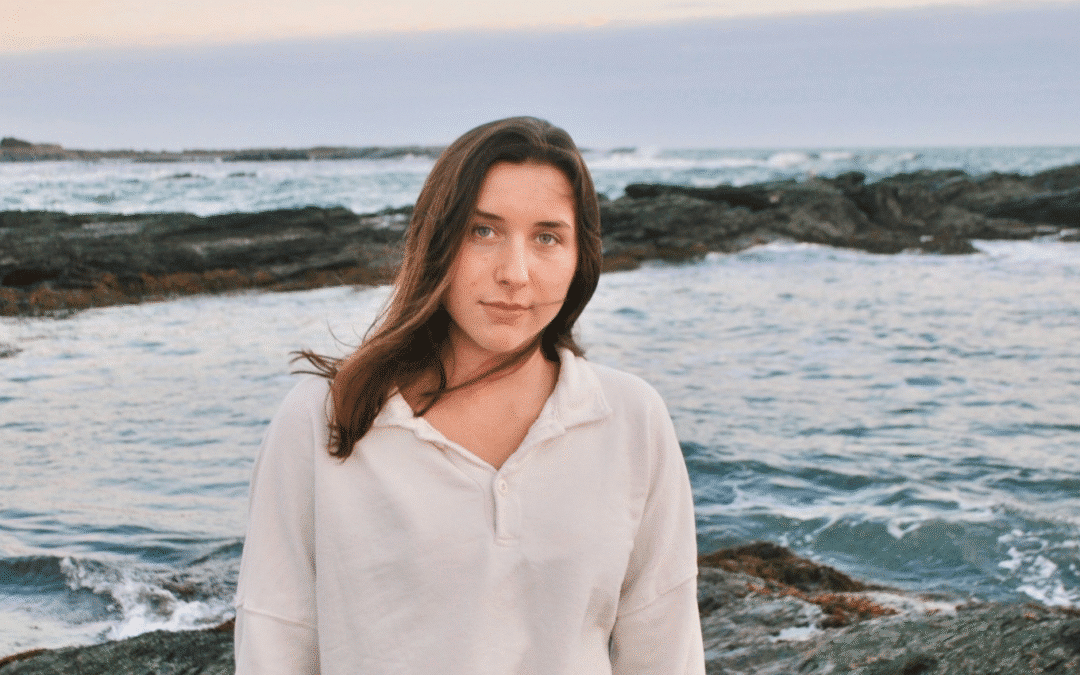From the age of five, Marley* can remember her mum throwing things like knives at her dad.
“They were always fighting,” she says. “Dad left us when I was eight. He couldn’t take it anymore. Now that Dad was gone, Mum would take her anger and frustration out on my siblings and me. The abuse went on for years.”
Marley used to take her siblings to the park after school. They would stay there while she went home to see what kind of mood her mother was in.
“If she was happy, I’d go back to the park, get my siblings and we’d go home,” she says. “If she wasn’t, we’d stay there until it was dark and sneak inside.”
In 2020, Marley started attending one of Youth Off The Streets’ high schools. At first, she didn’t show up to class regularly because of what was going on at home.
“I think I only went for 10 days in Year 10,” she recalls. “Mum had started seeing another guy, and at first it was good. They were pretty relaxed. She started spending more time with us and we even went on family holidays.”
Things took a turn for the worse when Marley’s mum and her boyfriend started using drugs.
“The first time I realised something wasn’t right was when her boyfriend threw a bottle of beer at her head,” she says.
“I was so used to violence that it didn’t really faze me at first, but later that night I realised that I would need to be more aware of what was going on so I could keep myself and my siblings safe.”
One night her mother became enraged, and Marley didn’t understand why. A friend was living with the family at the time – they were both so scared that they ran into their room to hide.
“Mum smashed down my bedroom door and I called the police,” Marley explains. “They took her away and the police let us stay at the house.”
Her mum was released later that night – Marley and her friend woke up to her bashing on the window, screaming to be let in.
“I had the house locked up, but Mum was crying and saying she was sorry,” Marley recalls. “She said she only wanted to get a few things and she would leave.
“When I let her in, she went mental. She poured bleach and boiling water over me and my friend. We called the police again and they took her away again.”
Despite having third-degree burns, Marley walked to the Department of Communities and Justice for help the next day.
She was placed in a refuge and connected to Youth Off The Streets’ Power Within program, where she learned about recognising domestic and family violence (DFV).
“I focussed on my education,” she explains. “When I started doing Youth Off The Streets’ Power Within program, I realised I was living through DFV.
“I started meeting with a DFV Prevention Worker to create a safety plan, because I knew that Mum and her boyfriend would be looking for me.
“Every conversation with the DFV worker and every Power Within class made me realise that DFV was not okay and that I had a choice not to accept it.”
Kylie Sharp, Youth Off The Streets’ DFV Prevention/Youth Support Lead, says, “You must understand that these young people have grown up in this environment and it’s so normal for them.”
“They’re used to neglect and abuse. When they leave a DFV situation and move into somewhere like a refuge, it’s like they don’t know how to cope with a normal life. When someone leaves a DFV environment they need intense support, otherwise they’ll go back to what they’re used to – what they’re comfortable with.”
Marley moved around different refuges. It was a difficult time for her because just as she started feeling settled, she’d have to move to the next temporary accommodation.
“None of the crisis refuges had workers with proper DFV training, so they didn’t really know how to help me,” she says. “I didn’t let that stop me getting to school, though.”
Marley and her mum kept in contact while she was moving between refuges. Her mum tried to convince her that she had changed.
“Mum used to send me stuff from Uber Eats for lunch. She said she was sorry that everything had happened and that she still loved me. She asked me for another chance. I self-placed back with Mum during the COVID-19 lockdown,” Marley explains.
After participating in Power Within classes and speaking with Youth Off The Streets’ staff, when Marley moved back home she realised the seriousness of the situation.
“Mum was trying to leave her boyfriend, but he was so coercive,” she says. “He would sit under Mum’s window and listen to our conversations. He would call Mum at random times and tell her he knew where she was and what she was doing. He stalked us and knew how to get into the house in seconds. None of us could sleep.”
One night, he turned up with a box cutter and the family called the police. They submitted an Apprehended Violence Order (AVO) against him, but he didn’t comply.
“Whenever I met with my DFV worker [at school], I would go home and relay the conversation that we’d had with Mum,” Marley says. “I don’t think she had ever realised that she was living in DFV. My DFV worker asked if Mum would be willing to talk to her.”
Her mum met with Marley’s DFV worker and explained to her that the family had been trying to get out of the house for over a year, and that sometimes she would take them all to a motel just to get a decent night’s sleep.
“She told my DFV worker that ever since I’d been coming home talking about DFV, she had realised that she needed help, but she didn’t know where to go,” Marley explains.
“The hardest thing is that DFV is a dirty topic to a DFV survivor,” Kylie says. “They blame themselves for what’s going on. They are ashamed of it. It’s easier to hide than it is to reach out.”
Marley’s DFV worker referred her family to Refuge Outreach Action Response (ROAR), a DFV family program.
“We stayed in a refuge until ROAR found us a new place to live,” she recalls. “When we went back to our old house to pack up, we saw horrible messages written on the walls that said things like, ‘I’m going to find you one by one’, and we could tell that people had been using drugs in our home.
“It was scary. ROAR got the police involved and they asked us to come to the station to make a statement.”
Although Marley’s mum was scared, she convinced her it was the best thing for them to do.
When they arrived at the station, the police asked them to do a video statement. It took a couple of tries to calm her mum’s nerves, but her mum completed the statement, and her boyfriend was put in lock-up that night.
Now 17 years old, Marley lives with her mum and siblings in a house with panic buttons, and they finally feel safe.
“I’m working on another safety plan with my DFV worker, for when Mum’s boyfriend gets out. This time, we’ll be prepared if he shows up and we’ll call the police as many times as we need to.”
Kylie says it’s important for the community to be understanding when people go through experiences like Marley’s.
“Many people ask, ‘Why don’t you just leave?’ But it’s not about that – it’s not about understanding why they don’t leave,” she explains.
“It’s about keeping them safe while they’re still in the situation so that, hopefully, they’ll be able to reach out for help when they are ready.”
May is Domestic and Family Violence (DFV) Prevention Month. Read our Q&A with Kylie Sharp to learn more about our Power Within program, which aims to educate young people about DFV and how to break the cycle of violence.
*Name changed to protect the identity of the young person.



